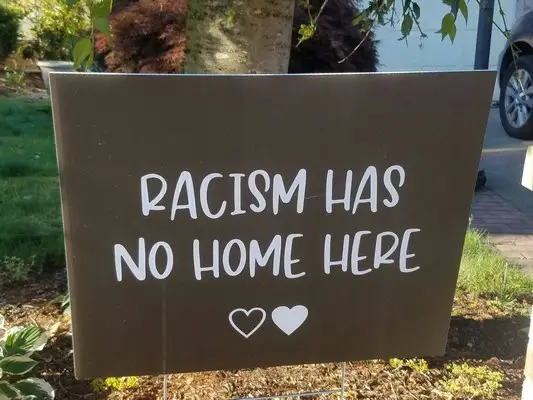Table of Contents
- Defining Institutional Racism
- Historical Roots of Institutional Racism
- Manifestations of Institutional Racism
- Consequences of Institutional Racism
- Addressing Institutional Racism
- Conclusion
Institutional racism is a systemic form of racial discrimination that occurs within institutions, organizations, and social structures. Unlike individual acts of racism, which are typically overt and conscious, institutional racism is often subtle and embedded within policies, practices, and procedures. This form of racism has a far-reaching impact, as it can perpetuate inequalities and disparities across various sectors of society, including education, healthcare, criminal justice, employment, and housing. Understanding institutional racism requires a deep examination of how systems operate, how they privilege certain racial groups over others, and how they maintain social hierarchies.
In this article, we will explore the concept of institutional racism, its historical roots, and its manifestations in contemporary society. We will also examine the consequences of institutional racism for marginalized racial groups and discuss potential solutions for addressing these deeply ingrained inequalities.
Defining Institutional Racism
Institutional racism refers to discriminatory practices and policies that are entrenched in the structures of society, disadvantaging people based on their race or ethnicity. It operates at the macro level, encompassing large social systems, such as governmental bodies, legal systems, and educational institutions. Institutional racism is not about the actions of individuals per se, but rather how institutions uphold and perpetuate racial inequality through seemingly neutral or standardized rules and procedures.
An essential characteristic of institutional racism is its invisibility to those who benefit from it. Those in positions of power, typically from dominant racial groups, may not recognize the existence of racial disparities because the system works in their favor. As a result, they may view institutional processes as fair and objective, while ignoring or minimizing the experiences of marginalized racial groups. This lack of recognition can make institutional racism difficult to address, as those in power often resist changes to a system that reinforces their own privilege.
One key example of institutional racism is the racial disparity in sentencing within the criminal justice system. Studies have consistently shown that people of color, particularly Black and Hispanic individuals, receive harsher sentences than their white counterparts for similar offenses. These disparities are not the result of overt racism by individual judges or law enforcement officers but are instead embedded in the policies and practices that govern the system, such as mandatory minimum sentencing laws and policing strategies that disproportionately target communities of color.
Historical Roots of Institutional Racism
Institutional racism is deeply rooted in history, particularly in societies with a legacy of colonialism, slavery, and segregation. These historical systems of oppression laid the foundation for modern institutional racism, as the ideologies that justified the subjugation of certain racial groups have persisted over time and have become ingrained in societal structures.
In the United States, for example, the legacy of slavery and Jim Crow laws has had a profound and lasting impact on the racial inequality experienced by Black Americans. The legal and social systems that enforced segregation and denied equal rights to Black individuals were dismantled only in the mid-20th century. However, the structures of inequality established during this period have not been fully eradicated. Housing policies, such as redlining, which systematically denied Black families access to homeownership, have contributed to the racial wealth gap that persists today. Similarly, the underfunding of schools in predominantly Black and Hispanic neighborhoods is a direct result of historical segregation and discriminatory policies.
In other parts of the world, similar patterns of institutional racism can be observed. For instance, in South Africa, the apartheid system institutionalized racial segregation and discrimination, disenfranchising the non-white population. Even after the official end of apartheid, many of the economic and social inequalities created by the system have persisted, as institutional structures continue to favor the white minority over the Black majority. The persistence of these inequalities highlights the difficulty of dismantling institutional racism, as the structures that uphold it are often deeply embedded in society.
Manifestations of Institutional Racism
Institutional racism manifests itself in various aspects of society, leading to significant disparities in life chances and outcomes for different racial groups. These manifestations can be seen in education, healthcare, housing, the labor market, and the criminal justice system. Each of these sectors plays a role in reproducing racial inequality, and the cumulative effect of these disparities results in systematic disadvantage for certain racial groups.
Education
One of the clearest examples of institutional racism can be found in the education system. Educational inequalities are often linked to racial and socioeconomic status, as schools in low-income, predominantly Black or Hispanic neighborhoods tend to be underfunded compared to those in wealthier, predominantly white areas. This disparity in funding translates into fewer resources, larger class sizes, and lower-quality education for students of color, limiting their opportunities for academic success and upward mobility.
Standardized testing, which is often used as a measure of academic achievement, has also been criticized for perpetuating institutional racism. These tests are designed based on cultural and linguistic norms that may not reflect the experiences of students from marginalized racial groups, resulting in lower scores for these students and reinforcing negative stereotypes about their intellectual abilities. Moreover, disciplinary policies in schools, such as zero-tolerance policies, disproportionately affect Black and Hispanic students, contributing to the school-to-prison pipeline.
Healthcare
Institutional racism in healthcare is another significant issue, as racial and ethnic minorities often face disparities in access to quality care, health outcomes, and treatment. For example, Black women in the United States are three to four times more likely to die from pregnancy-related complications than white women. These disparities are not simply the result of individual biases but are deeply rooted in the structures of the healthcare system.
One major factor contributing to healthcare disparities is the underrepresentation of racial minorities in the medical profession. This lack of diversity can lead to cultural misunderstandings, misdiagnoses, and inadequate treatment for patients from different racial and ethnic backgrounds. Additionally, the geographic distribution of healthcare facilities often leaves communities of color with limited access to high-quality care, further exacerbating health disparities.
Housing
The housing market is another area where institutional racism is prevalent. Historically, discriminatory practices such as redlining, racial covenants, and mortgage discrimination prevented people of color from purchasing homes in certain neighborhoods. While some of these practices have been outlawed, their effects are still felt today. The racial wealth gap, which has its roots in housing discrimination, continues to disadvantage Black and Hispanic families, as homeownership is one of the primary means of accumulating wealth in many societies.
Additionally, housing segregation remains a persistent issue in many urban areas, with neighborhoods often divided along racial lines. This segregation is perpetuated by zoning laws, discriminatory lending practices, and unequal access to affordable housing. As a result, communities of color are more likely to live in areas with lower-quality schools, higher crime rates, and fewer economic opportunities.
Employment
Get the full article AD FREE. Join now for full access to all premium articles.
View Plans & Subscribe Already a member? Log in.





